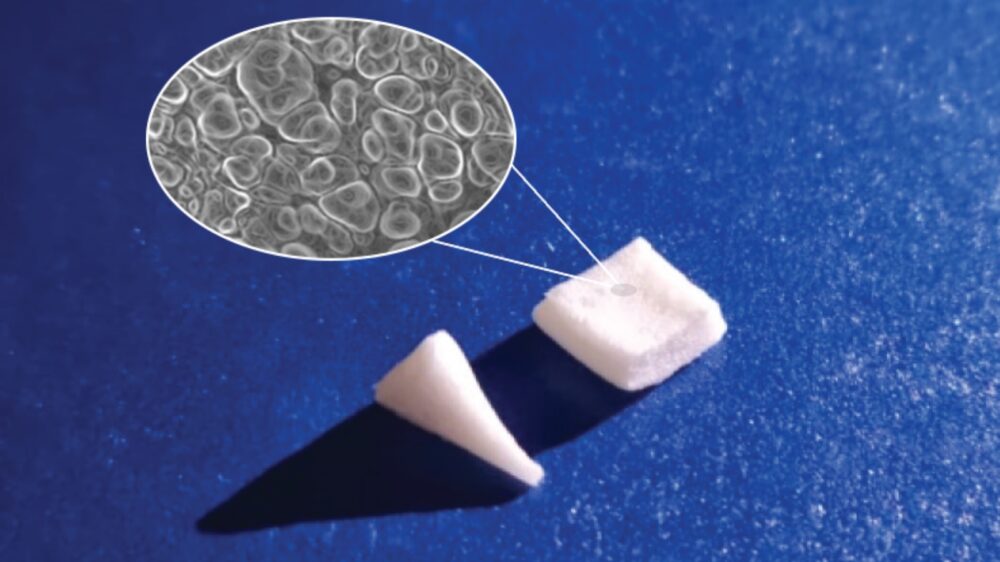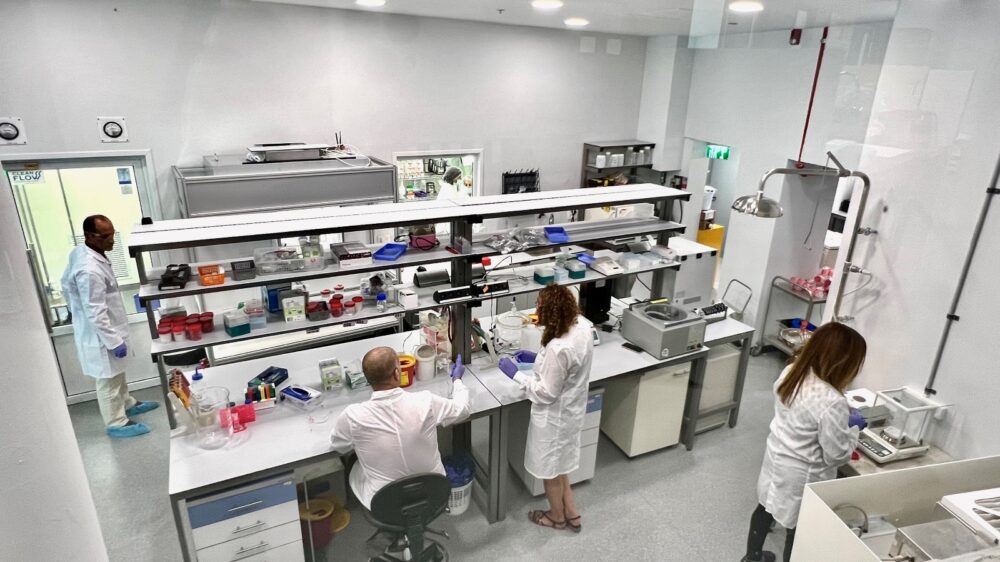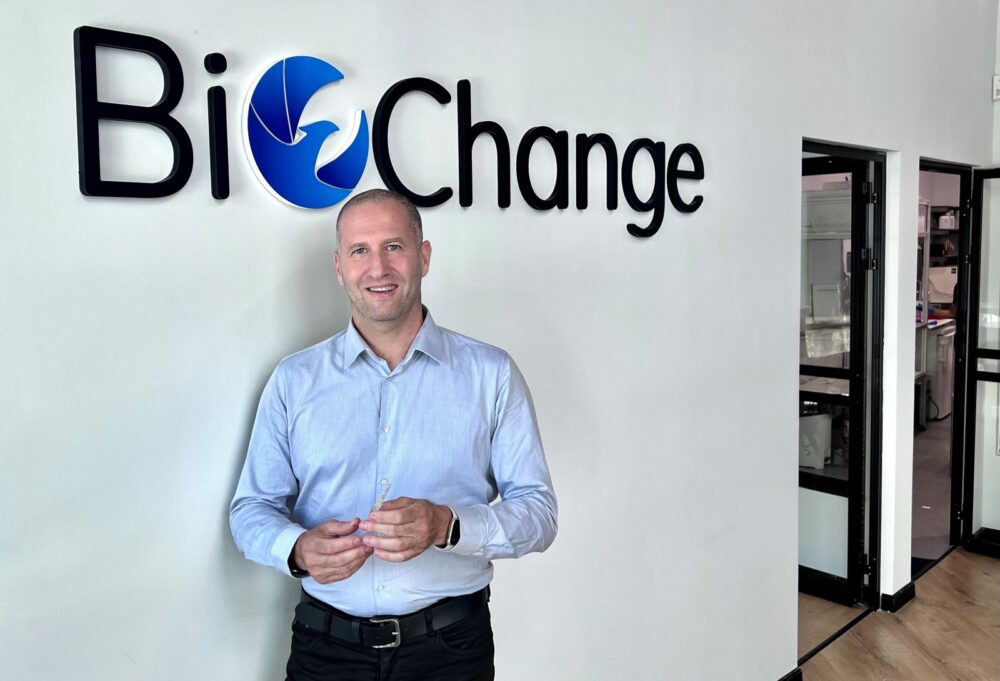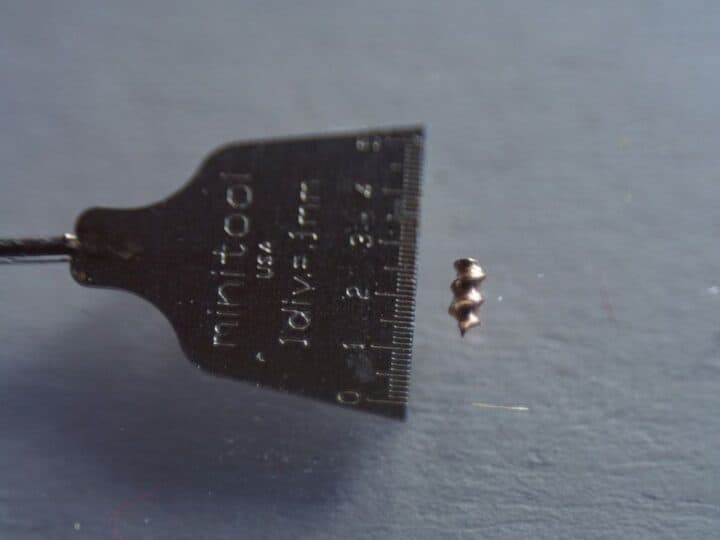Israeli startup BioChange has developed a tissue regeneration technology called ReGum that has been shown effective in helping to heal gum disease (periodontitis) in dogs.
ReGum is now commercially available for veterinary use and reportedly is the only product of its kind. A formulation for humans is expected within a few years.
ReGum is a unique scaffold implant that triggers a mechanism of repair and regeneration by the patient’s own cells at the injection site.
The scaffold is based on natural biomaterials designed for standard injection or minimally invasive surgical placement. Over time, the scaffold biologically degrades, leaving behind only autologous, regenerated, healthy tissue.
The product’s success at regenerating gum and bone tissues in nine dogs with naturally occurring periodontitis was reported in the journal Frontiers in Veterinary Science in June by veterinarian Dr. Ana Nemec of the University of Ljubljana in Slovenia, Dr. Jerzy Pawel Gawor of Poland and Peter Strøm of Denmark.
In the study, ReGum was found to be effective and safe with no side effects. The authors noted that it “significantly improved” results from the standard treatment, which is open periodontal therapy.
“Therefore, the use of this implant can be recommended in addition to open periodontal therapy in dogs with advanced periodontitis, considering the careful selection of the patients and teeth that will truly benefit from the treatment. This implant is not only effective and safe but also easy to handle and with a long shelf-life,” they concluded, calling for further studies to be done.

Ishay Attar, BioChange’s founder and CEO, said, “Dr. Nemec’s research began as an important exploration of our regenerative scaffold technology platform and eventually led to remarkable results specifically in periodontal tissue repair.”
Gum disease is common
Periodontal diseases are mainly the result of chronic infections and inflammation of the gums that surround and support the teeth.
In its early stage, called gingivitis, the gums are swollen and red. The more progressive form, periodontitis, causes the gum to pull away from the teeth. The teeth may loosen and fall out, and there can also be bone loss. This degenerative gum disease may even be linked to cardiovascular disease.
Attar, a serial entrepreneur, founded BioChange in 2017 with the vision of restoring body functions and tissues lost with age and degeneration. In the company’s first phase, it developed and brought to market a veterinary product addressing urinary incontinence.

Gum disease was a natural target for the platform technology because it’s so common, affecting pets and 40 percent of adult humans.
Current treatments for advanced periodontitis in humans include surgery to reduce the “pocket” between gums and teeth; soft tissue grafts or bone grafts; guided tissue regeneration using a biocompatible fabric placed between the existing bone and the tooth; and tissue-stimulating protein gels applied to the diseased root.
The dog study was intended to evaluate the safety and efficacy of the BioChange scaffold technology for the treatment of periodontitis in dogs in a clinical setting.
“For vets treating man’s best friend, the implant is easy to use and handle, and the procedure hardly takes any longer than the standard periodontal debridement treatment alone,” said Attar.

Several other products are in BioChange’s pipeline, in development in cooperation with other companies and research institutes internationally, he added.
“The company is now selling products in the veterinary and research markets and is committed to beginning its first clinical study in aesthetic dermatology in 2023,” he said.
Attar, a Technion graduate, previously founded four other medical technology companies including OutSense, which is developing a toilet sensor to transform colorectal cancer screening; and LifeBond, which was acquired in 2020.
For more information on BioChange, click here

















